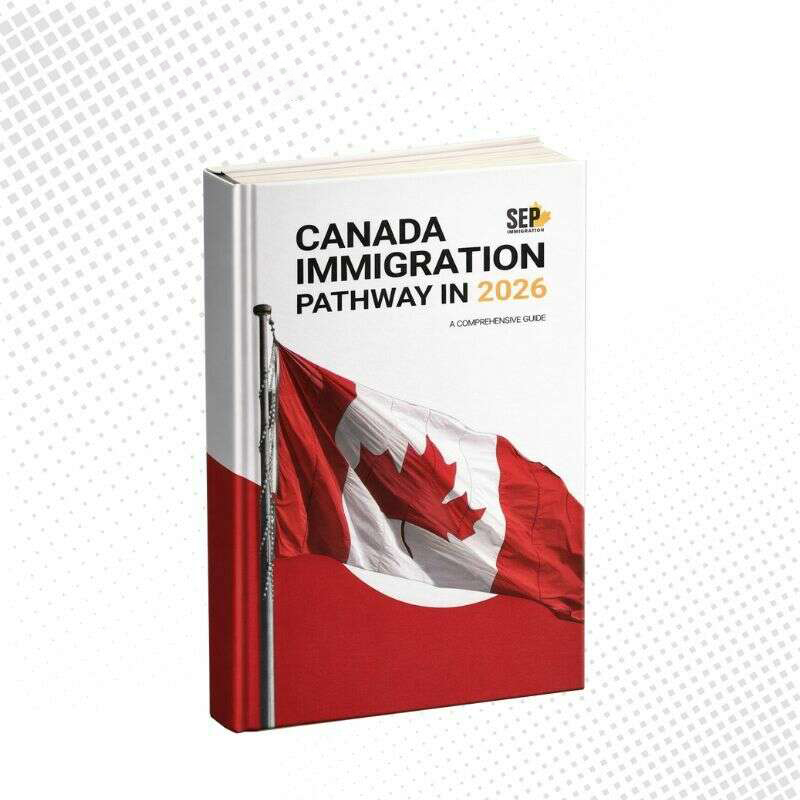
IRCC announced the great news on July 15, 2021 for individuals who have applied for the new Temporary to Permanent Residence program. Beginning July 26, 2021, these individuals will be eligible for an open work permit while awaiting the results of their application. The pathway program was opened on May 6, 2021 and helped many students and workers apply for their Permanent Residence.
Table of Contents
ToggleKey Updates to the Open Work Permit Policy
In response to evolving needs, IRCC introduced several changes to the TR to PR open work permit in 2022 to enhance flexibility and support for applicants:
- Extended Validity of Open Work Permits: Open work permits under this program can now be extended. Starting August 2, 2022, IRCC began issuing work permits valid until December 31, 2024. This extension ensures applicants can maintain their work status without worrying about gaps caused by permit expiry.
- Eligibility for Family Members Abroad: Family members of principal applicants, even if residing outside Canada, can now apply for open work permits. This change prioritizes family reunification, allowing families to stay together while the principal applicant’s permanent residence application is being processed.
These updates underscore Canada’s commitment to supporting applicants and their families, fostering stability, and addressing labor market needs.
Eligibility Criteria for the Open Work Permit
Many whose status is set to expire are able to extend their work permit under TR to PR programs or under one of the temporary measures put in place as a result of the pandemic, such as the public policy for post-graduation work permit holders.
To qualify for this open work permit opportunity, the applicants must:
- Have successfully submitted an application under one of the new pathway streams.
- Have a valid work permit or have been authorized to work without a work permit.
- Have a valid work permit that will expire within the next 4 months.
- Have the temporary resident status.
- Be in Canada.
- Have been employed in any occupation at the time their permanent residence application was submitted.
- Meet the language requirements of the stream under which they applied.
If you have applied for TR to PR and your status is set to expire, contact us to get you a new work permit.

Apply for an Open Work Permit Before Getting Your Permanent Residence
If you have applied through the TR to PR pathway, you might be able to get an open work permit while waiting for your permanent residence decision. Open work permits offer a unique advantage, allowing you to work for any employer without requiring a specific job offer, making them distinct from employer-specific permits. This is a great option if you want to keep working in Canada without interruption, even if your current work permit is about to expire.
To qualify for an open work permit under the TR to PR pathway, you must have temporary resident status in Canada, including maintained status, or be eligible to restore your status. It is also crucial to have submitted your open work permit application online through an IRCC Secure Account and indicate the permanent residence public policy stream you applied under. At the time of applying for permanent residence, you must have held legal authorization to work, such as a valid work permit or authorization under section R186 of the Immigration and Refugee Protection Regulations.
The application process is quite simple. Make sure you meet all the requirements, including having a valid work permit that expires in the next four months. You will also need to provide specific documents, such as proof of receipt of the IRCC confirmation email, proof of language test results, and evidence of authorized work. Supporting documents, such as employer reference letters, T4 tax information slips, or recent pay stubs, may also be required to verify your work experience in Canada. It’s important to apply for the open work permit as soon as you can to avoid any gaps in your work status. This permit is valid until December 31, 2024, or until a decision is made on your permanent residence application, whichever comes first. This gives you enough time to keep working while waiting for your application to be processed. Having a stable work status is crucial, as it allows you to continue supporting yourself and your family while contributing to the Canadian economy.
Additionally, the TR to PR pathway aims to address labor shortages by allowing skilled workers and international graduates to remain in the workforce. By securing an open work permit, you ensure you are not only building your career in Canada but also helping fulfill the country’s economic needs. Open work permits come in three main types: unrestricted, which allows work in any occupation and location; occupation-restricted, which limits the type of work but not the location; and restricted, which restricts both occupation and location. Understanding these categories helps ensure you apply for the permit that best suits your needs and situation.
Changes to the Open Work Permit Under the TR to PR Pathway
The TR to PR open work permit has brought some changes to make it easier for people to keep working in Canada. One big change is that work permits under the TR to PR program can now be extended. Previously, many people were at risk of losing their work status while waiting for their permanent residence applications to be approved. Now, with the open work permit, they can continue working without worry. This change means that applicants do not need to worry about their status expiring before their permanent residency is finalized, giving them greater stability and security.
The requirements for getting an open work permit have also been simplified. You no longer need a job offer to apply for an open work permit, which makes it easier for temporary residents who want to stay in Canada. These changes also apply to individuals eligible under programs like the Post-Graduation Work Permit Program and International Experience Canada, expanding access to those who may face challenges securing employer-specific permits. Along with the simplified process, applicants may benefit from fee exemptions in some cases, particularly for those transitioning from temporary to permanent resident status. Make sure to review the latest IRCC guidelines to avoid unnecessary delays in processing your application.
Furthermore, these changes make it easier for employers to retain staff without interruptions. Employers can keep their trained staff members, which helps with business continuity and reduces costs associated with hiring and training new employees. The open work permit under the TR to PR pathway is a win-win for both workers and employers, ensuring that the Canadian workforce remains strong and stable.
How to Add Dependents to Your TR to PR Open Work Permit Application
If you are applying for an open work permit under the TR to PR pathway and want to include your family members, you can add them to your application. Your spouse or common-law partner can also apply for an open work permit, and your children might be eligible for study permits. This way, your family can stay together, and your dependents can work or study in Canada while your permanent residence application is being processed. Open work permits for dependents typically fall under unrestricted permits, providing flexibility in occupation and location.
To add dependents, you need to include their details in your work permit application and make sure they meet all the requirements. Your spouse or partner must be in Canada with you and also have temporary resident status. When you apply, you need to provide proof of your relationship, such as a marriage certificate or proof of common-law status, along with documents showing your dependents are eligible. It’s a good idea to submit all dependent applications at the same time as yours so that everything can be processed together and your family can stay together without interruptions.
Why choose us?
We have been helping many applicants to become permanent residents for years and we have a high success rate. Our clients from almost 20 different countries have experienced this with us and you can be the next successful one. We know how to prepare documents and how to make your immigration process smooth and easy for you. Contact us HERE to start the process today!
If you are not a Canadian Permanent Resident yet and you are not sure what the best way for you to immigrate to Canada is, please fill out our assessment form HERE and we will get back to you with your possible options.





